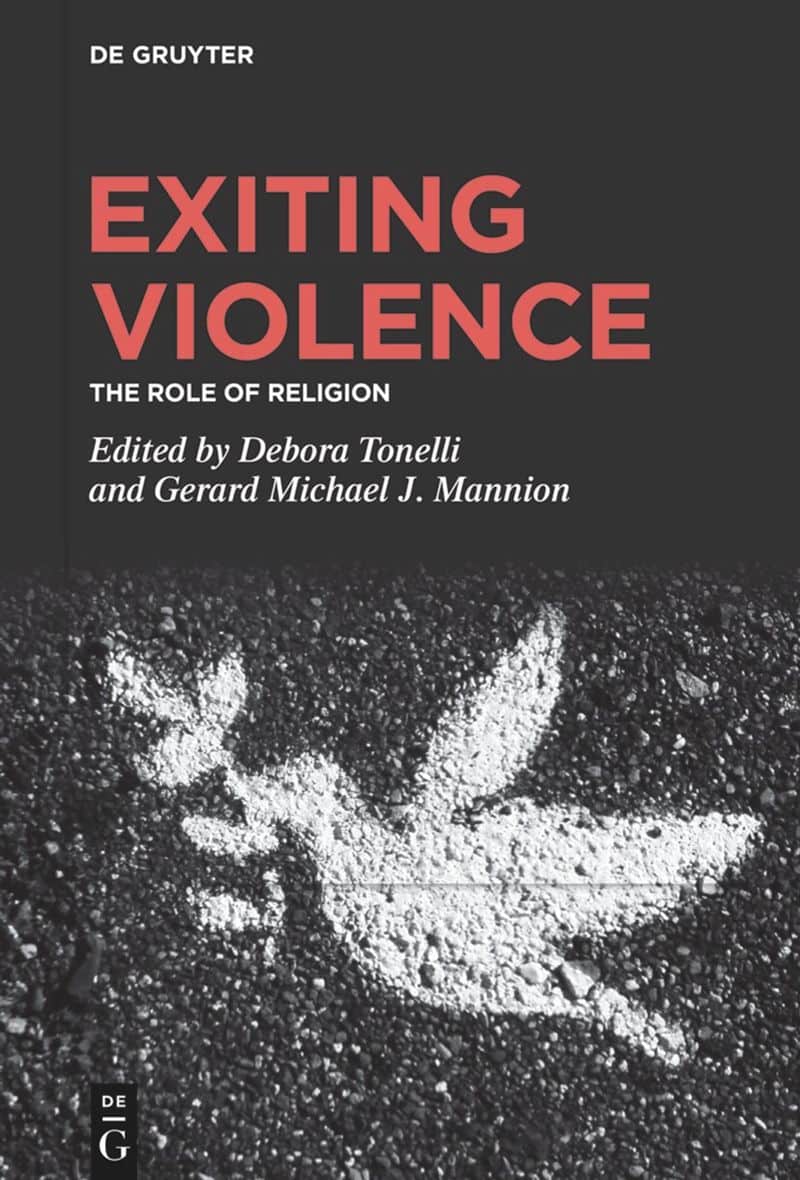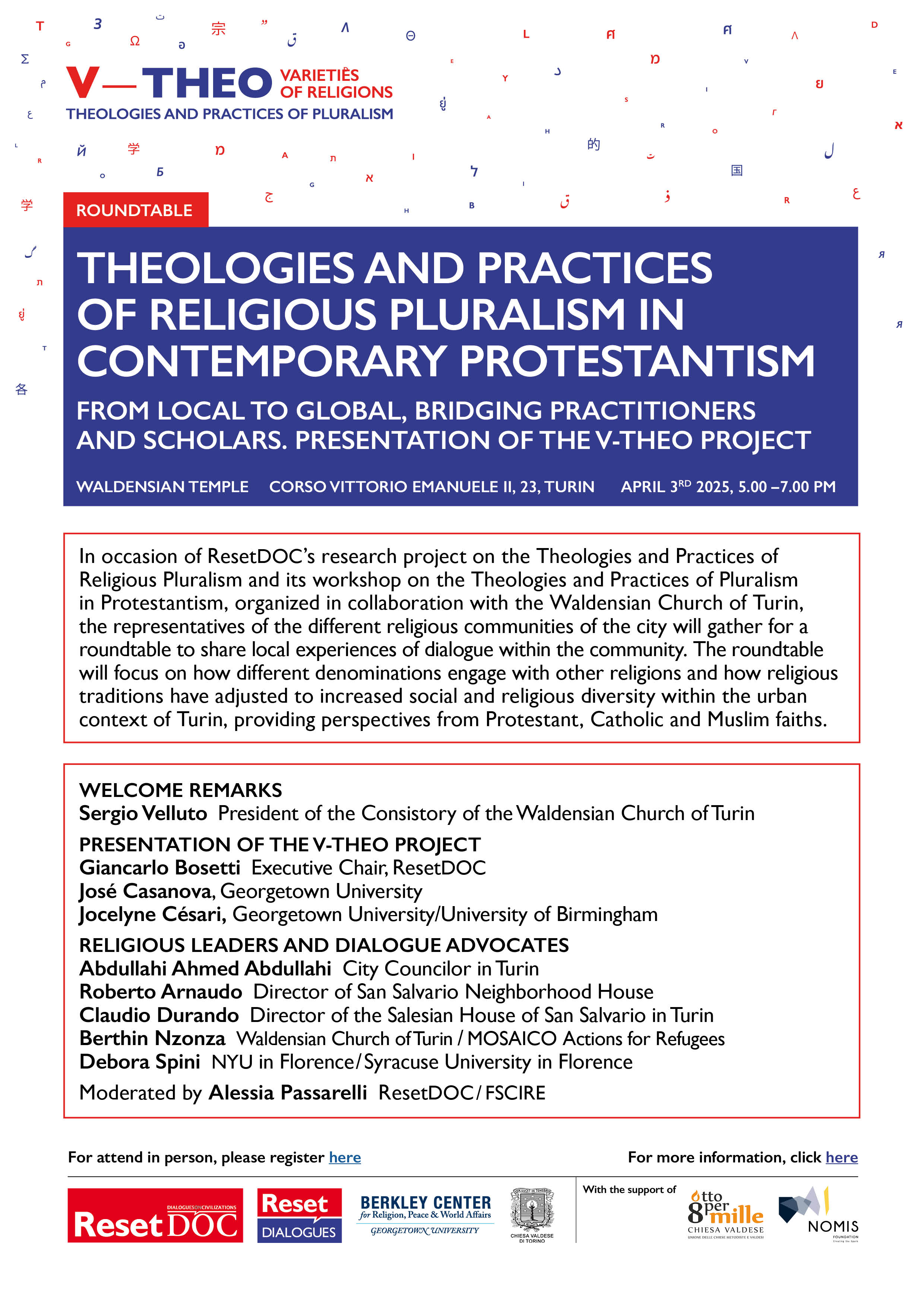What will it mean to have an Augustinian at the helm of the Catholic Church? A Church followed, on paper, by a billion and a half faithful, predominantly strong in what are increasingly becoming the world’s peripheries. Far from a West that seems to be fragmenting.
PublicationsReligion
In the 20th and 21st centuries, where violence has scarred countless lives, the interplay between religion, politics, and conflict remains a complex web. Exiting Violence looks to untangle some of these knots, showing not only how faith can ignite bloodshed, but also how it can inspire peace and build bridges. From Biblical hermeneutics to Buddhism, from secularism to legal systems, Exiting Violence offers a nuanced and thought-provoking exploration of the multifaceted role religion plays in the human struggle for peace and justice.
Our Initiatives Religion
The project “Theologies and practices of religious pluralism” investigates current debates and issues on pluralism within and across religious traditions and how some of these debates are reshaping the status of religion in different public spaces. These adaptations have a profound impact on international relations and daily life in every society, across cultural, ethnic, racial divides.
This project is jointly promoted by Reset DOC (Italy), Reset Dialogues (US) the University of Birmingham (UK), the Berkeley Center at Georgetown University (US), the Foundation for Religious Sciences in Bologna and Palermo (Italy) and the Haifa Laboratory for Religious Studies (Israel).
The international association Reset Dialogues on Civilizations has launched the Reset Seminars of Pluralism in the Middle East and North Africa, a yearly international program on cultural and religious pluralism and political liberties. The purpose is to promote a local intellectual response to the rise of rigorist strands of Islamic thought by training 40 emerging opinion-leaders on the relationship between religion, history and power and to contribute to the reawakening of pluralistic traditions in Muslim contexts.
Videos Religion
Editorial Board 23 October 2024
The ecclesiastical ties between Russia and Ukraine are crucial to understanding the ongoing conflict and envisioning peace. Ukraine’s Orthodox community is divided, with over half aligning with the autocephalous Kyiv Patriarchate established in 2019, while 40 percent remain loyal to the Moscow Patriarchate, which views Kyiv as the birthplace of Russian Orthodoxy. Recently, all three branches of the Ukrainian Orthodox Church have declared independence from the Russian Orthodox Church, distancing themselves from Patriarch Kirill’s support for the war. Will faith overcome power politics and help to bring peace to the region?
ConveningReligion
Washington D.C.
This panel gathers scholars to explore how Jewish thought, identity, and practice respond to pluralism in today’s globalized world, addressing challenges like relativism, atheism, and diverse norms. Panelists will discuss Judaism’s role in cultural and religious diversity, reflecting on its contributions and transformations. Through theology, philosophy, politics, and sociology, this conversation invites the public to ponder Jewish pluralism in our interconnected yet fractured world.
The Clough Center for Constitutional Democracy at Boston College is screening, for the first time, two short documentaries by Reset DOC on the role of religion in reconciliation and peacebuilding. 1. Religion and Reconciliation in Bosnia-Herzegovina and hte Balkans and 2. The Case of the Russia-Ukraine Conflict and the Role of the Orthodox Church.
Directed by Filippo Macelloni, these timely 25-minute films analyze the role of religion in peace-making efforts in the context of the wars in Bosnia-Herzegovina and Ukraine-Russia. Historical background and expert interviews are interwoven in an informative and engaging viewing experience.













